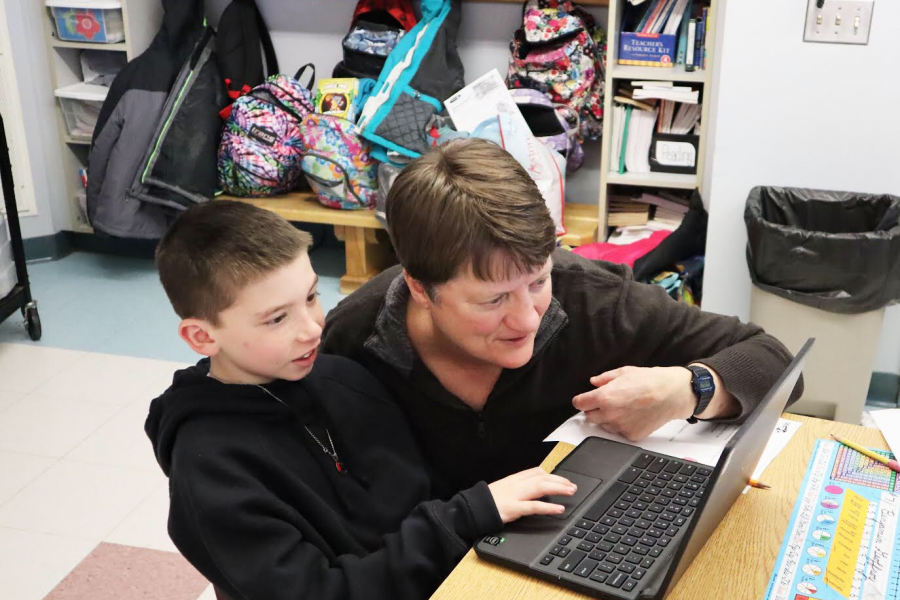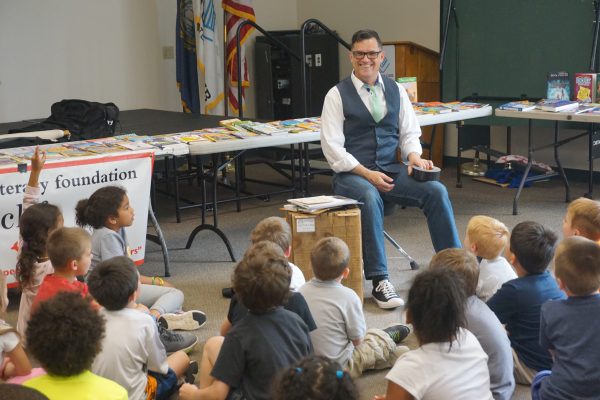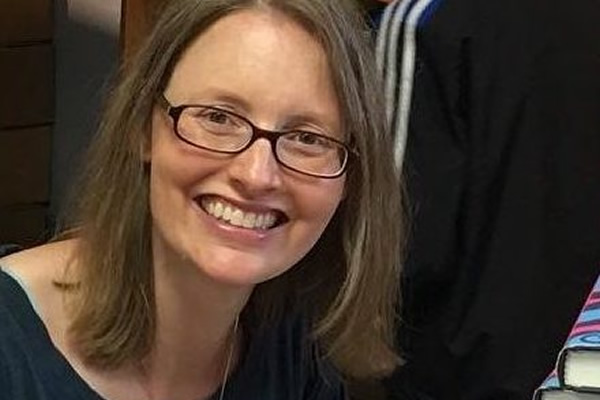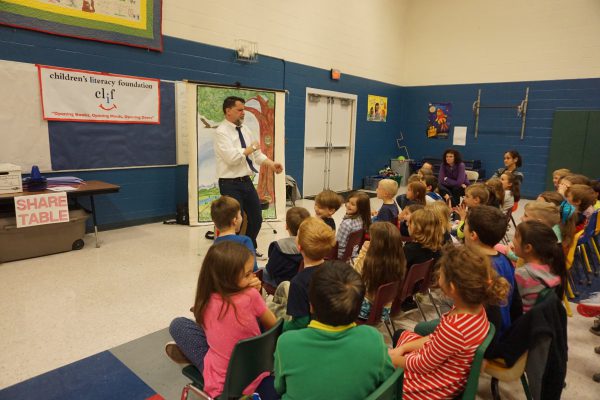
One of the things that makes CLiF programs unique is our amazing line-up of 64 authors, illustrators, poets, and storytellers who visit low-income, at-risk, and rural kids in schools, libraries, after school programs, childcare centers, immigrant/refugee programs, shelters and affordable housing developments, summer camps, and other places where kids spend time. Our inspiring presenters tell stories and share their processes to get kids excited about reading and writing.
Author Natalie Kinsey-Warnock (pictured above with a Boscawen Elementary student in Boscawen, NH) has been sharing her stories with kids at CLiF programs for years. She is the author of more than twenty children’s books, including The Bear That Heard Crying and True Colors. Natalie brings her Storykeepers program – a multi-day workshop on researching and telling family stories – to CLiF’s Year of the Book schools (just one of the offerings available through CLiF’s school year-long Year of the Book program), which culminates in a fun family event to learn about the stories students have uncovered. You can read more about Natalie’s Storykeepers program in US News & World Report. We asked Natalie what inspires her work and what she loves most about working with kids.
Q. What inspired you to become a writer? What inspired your Storykeepers program?
A. I was always writing stories, from the time I learned how to write, but what inspired my first book, The Canada Geese Quilt, was my grandmother, Helen Urie Rowell. Starting at age 65, she made, by hand, 250 quilts. After she had a stroke, I realized I wanted people to know about her, so I wrote a story about her, then my sister was finding these amazing family stories, like the one we wrote up in The Bear That Heard Crying, so I wanted to find more of those family stories, and that is also what inspired Storykeepers, that every family has amazing stories.
Q. What advice do you want to give to aspiring young writers?
A. Read good literature, and that will give you a sense of how to communicate ideas, the rules of grammar, how to put words together, and how to use words in a powerful way. And I also tell them to find family stories, because I think they make the best stories.
Q. How do you think kids benefit from Storykeepers?
A. They learn about themselves, where they came from, what their ancestors were like, how they got through difficult times. A study done by Emory University found that children who know their family stories have higher self-esteem, suffer less from depression, and are better able to handle peer pressure and times of crisis. They also form deeper bonds with family members while doing Storykeepers, and are more interested in the stories that family members tell them.
Q. Do you have any stories you’d like to share from your Storykeepers experiences? Anything that stands out?
A. Teachers and parents are always telling me how Storykeepers transformed their students and children, how it mended a rift in a family, or helped a low level learner obtain success in school. I’ve seen how excited students get in their research–this research is about THEM, and their family, and they are so proud of these people that they find—and in most schools I visit, there is almost an electrical current of excitement running through the school where everyone is thinking about, talking about, what they are finding in their family history, and they all want to share their findings.
Q. Why do you think programs like CLiF are important? Why do you think literacy is important in today’s world?
A. I’ve seen how the students in CLiF schools are ecstatic over getting their new books and can’t wait to read them! Books have always been one of my deepest loves, and I can’t imagine a life without books, so I’m so happy to see students loving books. As far as literacy—well, if you have trouble reading, you’re going to have a difficult time all the way through life, so I think literacy is literally one of the biggest keys to success, and happiness, in life.
Q. Is there anything else you’d like to share?
A. That I am so grateful for the opportunity that CLiF has given me to go into these schools and share my passion for history and genealogy with these students, and to work with them in finding their own history and stories.
Natalie Kinsey-Warnock was raised on a farm in the Northeast Kingdom of Vermont and is the author of more than twenty books, including The Canada Geese Quilt and As Long As There Are Mountains. She writes about family stories and shares her passion for research and storytelling with students. You can find her at kinsey-warnock.com.




Natalie,
I am a librarian at Franklin Central School here in Vermont. Would you give me permission to read some of your books during this time of isolation for my students? I would only be using our school site and would delete it when we come back to school
Thank You